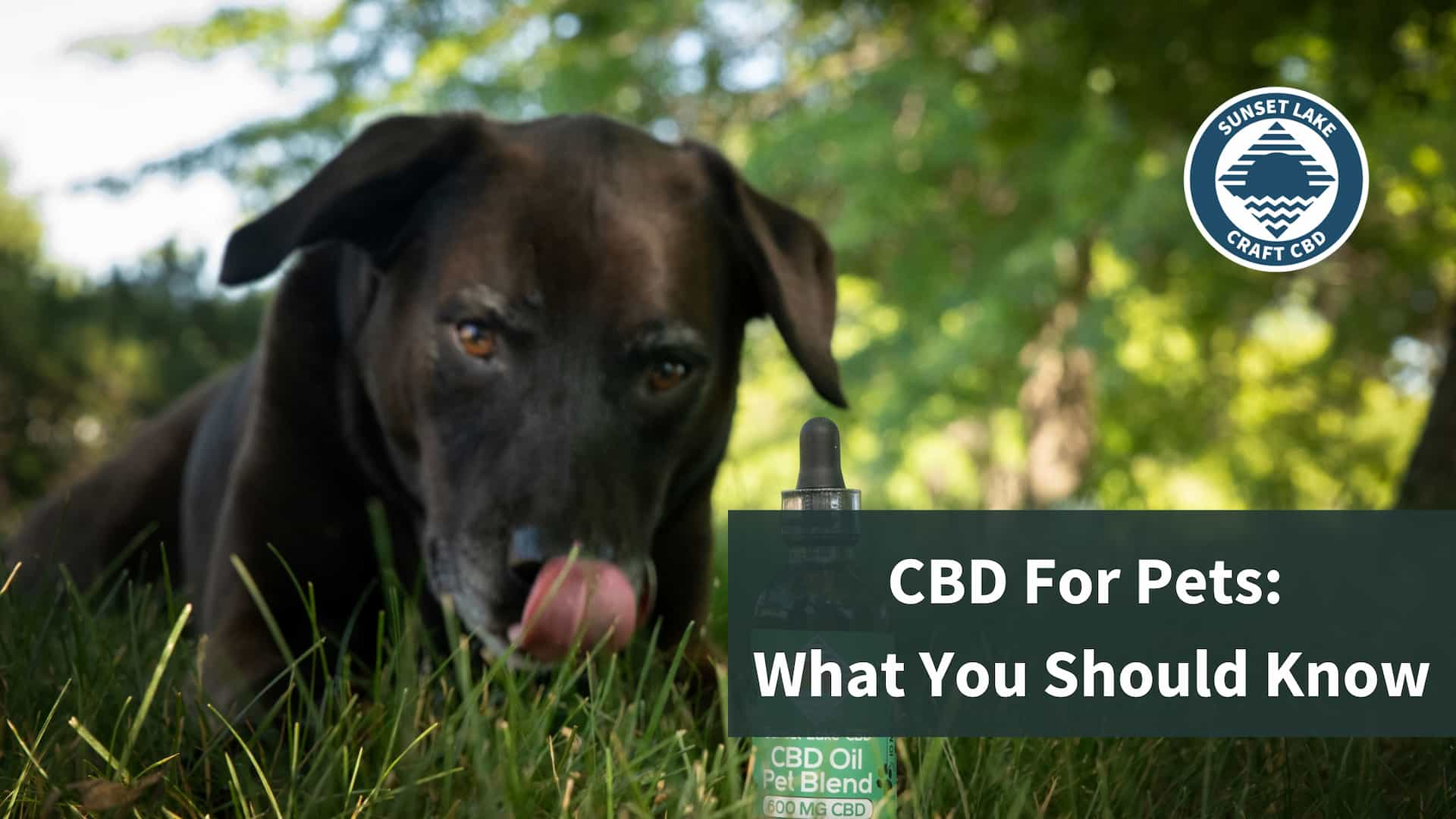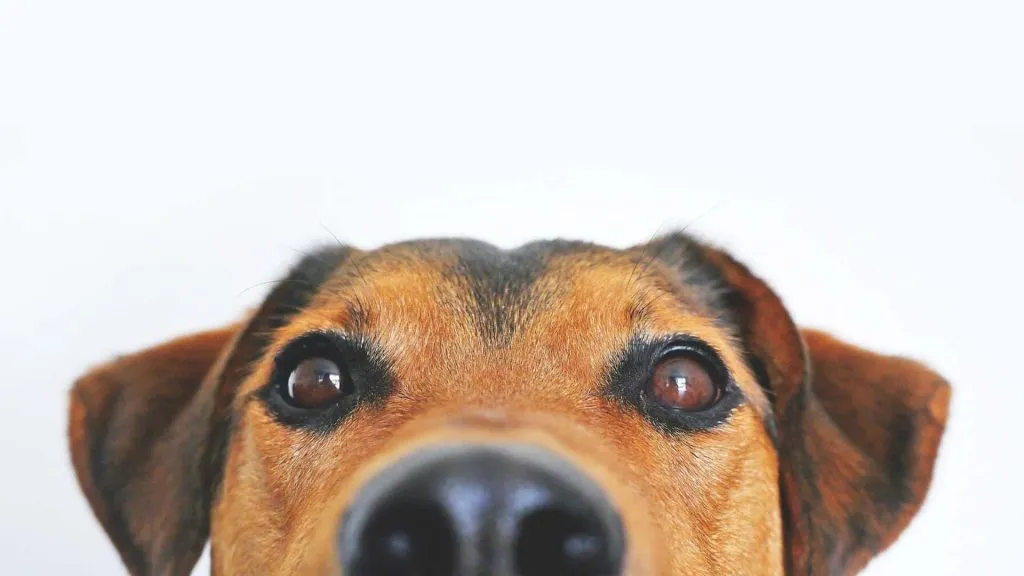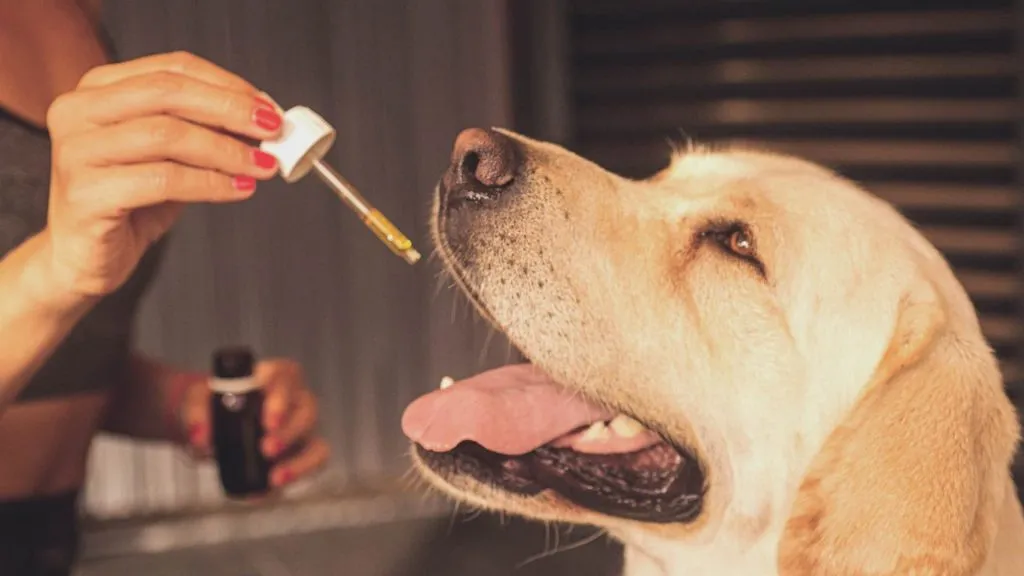No products in the cart.
CBD For Pets: What You Should Know

Key Takeaways
- CBD is a natural supplement that can help with your pet’s general health and mobility.
- CBD has no official health benefits, but many pet owners use CBD successfully to treat their pets every day.
- Not all CBD products for pets are made the same. Make sure you know what you’re buying and who you’re buying it from
More pet owners are turning to natural supplements and remedies to help support their pet’s health and wellbeing. Like thunder shirts and Epsom salt soaks, CBD is a natural alternative that can benefit your pet in several ways.
In this post, we’ll address some common questions and claims about CBD for pets and do our best to back it all up! First, let’s review what CBD is and where it comes from.
What Is CBD for Pets?
CBD is one of the more than 100 naturally occurring cannabinoids produced by hemp plants. Unlike THC, the psychoactive cannabinoid responsible for marijuana’s intoxicating effects, CBD is calming and won’t cause intoxication. CBD works by interacting with your pet’s endocannabinoid system.
The endocannabinoid system, or ECS for short, is a biological system that helps animals regulate:
- Sleep
- Appetite
- Stress
- Inflammation
- And more…
We believe that CBD’s role is to help the endocannabinoid system run more efficiently. That’s true for us humans as well as our pets.
Is CBD for Pets Safe?
CBD is a hemp and cannabis product, so it makes sense that you may be concerned about your pet’s safety. Unlike THC, which can be toxic for cats and dogs, CBD seems to be well tolerated by most animals.
CBD side effects still exist, but many are mild and stop as soon as you stop dosing your pet. Those side effects include:
- Dry mouth: CBD can slow the production of saliva. As a result, your pet may drink more water.
- Low blood pressure: Large doses of CBD can cause a temporary drop in blood pressure. This can lead to brief feelings of light-headedness.
- Drowsiness: While many owners use CBD for pets to manage anxiety, you can overdo it. Too much CBD may make your pet drowsy.
The best way to avoid any unwanted side effects is to consult your vet. Based on the weight and condition of your pet, they may have some insight and can recommend a dosage schedule. If not, look for dosing instructions on your CBD product and start on the lower end of that spectrum.
Benefits of CBD for Pets
Only a handful of scientific studies about CBD use and pet health exist at this time. It makes sense, given the relatively short time CBD has been federally legal. That said, many people who give their pets CBD say that it helps with:
- Anxiety and stress relief – CBD is well-known for its calming effects, which can be helpful for pets who experience separation anxiety, sensitivity to loud noises, and situational stress.
- Pain management – CBD may relieve discomfort and inflammation for pets experiencing injuries, inflamed joints, or suffering in the cone of shame.
- Mobility support for older pets – CBD may help older pets suffering from arthritis and limited mobility. A recent study found that in dogs, a CBD dose of 9mg/10lbs administered every 12 hours for four weeks led to a significant decrease in pain and an increase in physical mobility.1
- Seizure management – A few animal-based studies have found that CBD can help reduce the frequency and severity of seizures. In dogs, a 9mg/10lb CBD dose every 12 hours for twelve weeks reduced seizure frequency by 33%.2
- Skin and coat health – Because CBD can help manage symptoms of inflammation, it can help manage skin conditions and pet allergies, leading to fuller, healthier coats.
Different Types of CBD Pet Products
CBD for pets comes in a few forms, and not all work the same way. If you want to use CBD in a targeted way to help manage your pet’s symptoms, you should know the difference between products.
CBD Oils
CBD oils for pets are simple and offer customizable dosing. Generally, oils are made with two or three ingredients:
- Carrier oils – Olive, MCT, or Hemp
- CBD extract – Containing active cannabinoids
- Optional flavoring – Common flavors for pet blends include bacon, salmon, and peanut butter.
CBD Treats
CBD treats are a convenient pre-dosed option for picky eaters. For your pet’s sake, stick with treats made with simple ingredients. Generally treats will take a bit longer to kick in as your pet will need to digest the treat before they begin to experience any benefits.
Capsules
Capsules, like oils, are on the more simple side of products. If your pet is willing to swallow a CBD capsule, they’ll experience longer-lasting benefits than if given the oil. The difference stems from how your pet digests the CBD in the capsule vs. the oil.
Topicals
If your pet has hotspots, irritated joints, or cracked paws, you may want to consider CBD topicals. A topical for pets should contain simple ingredients as their needs differ from our skin care needs.
How to Find the Best Pet CBD Products
Now that you know what CBD may do for your pet and what type of product might best suit you and your pet’s needs, let’s review how to find the best product for your buck.
A Certificate of Analysis (CoA)
Any and all vendors should provide you with a third-party certificate of analysis. A certificate of analysis will tell you what cannabinoids are inside your product and their concentration. In a gray market such as hemp and CBD, certificates of analysis are a great safeguard.
Sunset Lake CBD’s certificates and licenses can be found right here.
Clear dosage information
Does the package or online store page have clear dosage information and instructions? Be wary of companies that don’t offer upfront instructions about how to use their product.
Would you take it?
Insist on seeing the ingredient list and look for any eyebrow-raising additives. If you wouldn’t take it, is it acceptable CBD for your pet?
Where was the CBD grown?
Don’t shop based on price alone. A lot of CBD-rich hemp flower is grown in sub-optimal conditions and may contain higher concentrations of heavy metals.
Another way you can confirm the safety of a product is via the certificate of analysis. Look for mycotoxin and heavy metal tests.
Conclusion
Thank you for reading our quick blog about CBD for pets. To learn more about CBD, hemp, and how it can help four-legged friends, please see our collection of blogs about CBD and pets here.
Be sure to check Sunset Lake’s lineup of CBD products for pets, too. As a vertically integrated farm, we craft premium products with hemp, which we grow ourselves. Plus, we’ll ship them directly to your door!
Sources
- Rosenberg, Evan C et al. “Cannabidiol modulates excitatory-inhibitory ratio to counter hippocampal hyperactivity.” Neuron vol. 111,8 (2023): 1282-1300.e8. doi:10.1016/j.neuron.2023.01.018
- Rozental, Aaron J et al. “The efficacy and safety of cannabidiol as adjunct treatment for drug-resistant idiopathic epilepsy in 51 dogs: A double-blinded crossover study.” Journal of Veterinary Internal Medicine vol. 37,6 (2023): 2291-2300. doi:10.1111/jvim.16912
This post was originally published on February 8th, 2021 and was updated on November 21, 2024 by the original author.


